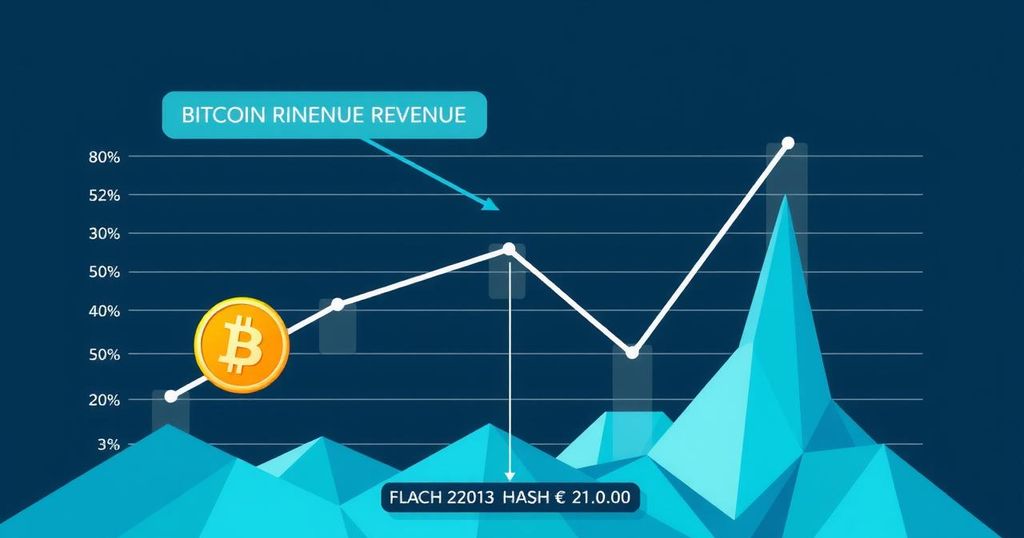Major Revenue Challenges for Bitcoin Miners Amid Market Struggles
Bitcoin miners are facing a steep decline in revenue despite Bitcoin’s price around $84,000, largely due to the halving event and increased operational costs. Key metric hashprice is near a five-year low at $44.00 PH/s. The Valkyrie Bitcoin Miners ETF has fallen 50% this year, reflecting the industry’s challenges. Miners are exploring alternative revenue streams to navigate these conditions.
Bitcoin miners are currently experiencing significant financial strain, with revenues plummeting despite the cryptocurrency trading at approximately $84,000. The recent halving event, which reduced mining rewards by 50%, coupled with rising operational costs, has further exacerbated the situation. The Valkyrie Bitcoin Miners ETF has suffered a 50% decline this year, indicative of the broader difficulties within the mining sector.
The hashprice, a crucial metric reflecting miner revenue, is languishing near a five-year low, presently at $44.00 per petahash (PH/s). This metric determines the expected income for miners based on their computational power, most commonly referenced in U.S. dollars for comparative analysis. Despite currently favourable Bitcoin prices, miner earnings are on a downward trajectory due to increased competition, higher mining difficulty, reduced transaction fees, and escalating energy costs, creating a challenging environment.
While current hash prices indicate the potential for miners to break even depending on their equipment, this performance pales in comparison to the heights seen during the 2021 bull market. Looking forward, ongoing stagnant Bitcoin prices and geopolitical uncertainties, including possible tariffs affecting mining operations, could further hinder industry recovery. This sentiment is reflected in the Valkyrie ETF’s performance, which has dropped significantly in relation to the modest Bitcoin decline of approximately 10%.
As a result of these dire circumstances, miners are increasingly diversifying their revenue sources, with some reallocating their computational resources towards artificial intelligence projects for additional income. This shift underscores the necessity for innovation within the mining sector as it adapts to ongoing market pressures.




Post Comment